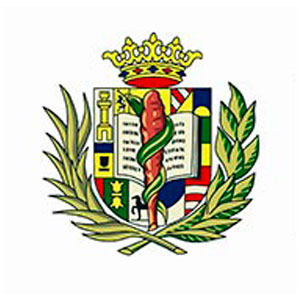Master’s Degree in Bioinformatics

Curriculum specialized in the analysis of data generated by the new 'omics' technologies
Bioinformatics is one of the scientific disciplines that has had the greatest prominence and impact in recent years, especially after the pandemic generated by COVID-19, thanks to the research, development, and application of computer and computing tools to enable and improve the management of biological data.
Since it is a recently-created discipline, there is a growing demand for specialized professional profiles. This Master's Degree was created in response to this business need to train bioinformatics students who will lead the field in the future.
The degree's main purpose is to offer students highly specialized, top-level education, both at a theoretical and applied level, to effectively meet the growing demand for IT profiles specialized in the management and analysis of clinical data, and with the ability to generate computational models.
Read +Learning goals:
- Provide detailed knowledge of the mathematical and statistical foundations of the models that are commonly used in the field of medical data science.
- Train students in the latest generation programming tools used in data science, especially those used in omics techniques.
- Provide students with the specific knowledge, skills and competences to understand and design Machine Learning and Deep Learning (neural networks) algorithms.
- Be able to understand the existing technologies and tools for the acquisition, storage and processing of massive data in health platforms.
- Know the main clinical applications where these data science and engineering techniques are being applied, with the aim of understanding the basic needs, and be able to provide added value to this process.
- Be able to model biological systems computationally to obtain predictions and inferences at a theoretical level.
Discover the programs and activities of the Faculty of Life and Natural Sciences
Student profile:Those interested in studying and obtaining the Master's Degree in Bioinformatics, in addition to meeting the requirements imposed by current legislation, must have a degree from the field of:
- Computer engineering and similar.
- Industrial Engineering (any branch)
- Biomedical engineering and similar.
- Biology, biotechnology and similar.
Official Degree:Master’s Degree in Bioinformatics
Learning Center:School of Life and Nature Sciences
Branch of knowledge: Engineering and Architecture
Places offered: 35
Total Credits 60 credits.
Minimum 12 ECTS credits and maximum 60 ECTS credits per enrollment and academic year.
Duration: 1 year.
Teaching Type: Classroom attendance
Academic Regulations: General student’s regulations. Credit transfer and recognition. Regulation of student participation. Common procedures for carrying out the Final Research Project
University Services: [+info]
Internal Quality Assurance System System managers Incidents, Suggestions and Complaints Job placement report and assessment of training received
Master's degree with high employability
Curriculum
The student must take 60 credits
First Semester 28 ECTS
- 4 ECTS | Computer tools for medical data management
- 4 ECTS | Computing infrastructures in the health field
- 4 ECTS | Molecular biochemistry
- 4 ECTS | Advanced programming and algorithms
- 4 ECTS | Probability and computer biostatistics
- 4 ECTS | Obtaining, analysis and interpretation of omics data
- 4 ECTS | Experimental design in bioinformatics
Second Semester 32 ECTS
Information of the Subjects
More Academic Information
Competences
Knowledge or content- K1. Graduates will be able to compile knowledge of basic scientific and technical subjects that will enable them to learn new methods and technologies, as well as provide them with great versatility to adapt to new situations.
- K2. Graduates will be able to reproduce the data structures and algorithms studied, applying their use to data of biological origin.
- K3. Graduates will be able to collect omics data for subsequent analysis and interpretation in a clinical setting.
- K4. Graduates will be able to memorize knowledge related to cell and molecular biology.
- K5. Graduates will be able to identify the main infrastructures to work with medical data, as well as the necessary computer tools for it.
- K6. Graduates will be able to enunciate the fundamental principles of the experimental design in relation to the corresponding statistical bases.
- K7. Graduates will be able to compile intermediate/advanced knowledge of bioinformatics, as well as demonstrate an understanding of the theoretical and practical aspects and the work methodology in its field of study.
- K8. Graduates will be able to reproduce the biological models presented computationally, depending on the context presented.
- H1. Graduates will be able to apply their general knowledge of bioinformatics and its specialties to understand medical problems.
- H2. Graduates will be able to solve basic bioinformatics problems through an analysis process, identifying the problem, establishing different resolution methods, selecting the most appropriate and its correct implementation.
- H3. Graduates will be able to carry out conceptual designs for bioinformatics applications according to their level of knowledge and understanding, working as a team. The design encompasses broader programs, processes, protocols, strategies, objects, and specifications than strictly technical ones, including social awareness, health and safety, and environmental and business considerations.
- H4. Graduates will be able to use appropriate methods to carry out studies and solve problems in the bioinformatics field, in accordance with their level of knowledge. The research implies carrying out bibliographic searches, the design and execution of computational experimental practices, the interpretation of data, the selection of the best proposal and the communication of knowledge, ideas and solutions in their field of study. This may require consultation of databases, security standards and procedures.
- H5. Graduates will be able to apply the theoretical knowledge acquired to the resolution of real problems, making use of the tools (physical or computational) offered.
- C1. Graduates will know the fundamental principles of molecular, cellular, structural and biochemical biology applied to human beings.
- C2. Graduates will know the fundamental principles of functional programming, which is object-oriented, and the main data structures and their algorithms.
- C3. Graduates will be able to understand knowledge that provides a basis or opportunity to be original in the development and/or application of ideas, often in a research context.
- C4. Graduates will be able to cite the knowledge acquired in new or little-known environments within broader (or multidisciplinary) contexts related to their area of study.
- C5. Graduates will be able to make judgments based on information that, being incomplete or limited, includes reflections on the social and ethical responsibilities linked to the application of their knowledge and judgments.
- C6. Graduates will be able to communicate their conclusions and the ultimate knowledge and reasons that support them to specialized and non-specialized audiences in a clear and unambiguous way.
- C7. Graduates will be able to continue studying in a way that will have to be largely self-directed or autonomous.
- C8. Graduates will have acquired advanced knowledge and demonstrated, in a context of scientific and technological or highly specialized research, a detailed and well-founded understanding of the theoretical and practical aspects and of the work methodology in one or more fields of study.
- C9. Graduates will be able to apply and integrate their knowledge, their understanding, their scientific foundation and their problem-solving abilities in new and imprecisely defined environments, including multidisciplinary contexts, both research and highly specialized professional contexts.
- C10. Graduates will be able to evaluate and select the appropriate scientific theory and the precise methodology of their fields of study to formulate judgments based on incomplete or limited information, including, when necessary and pertinent, a reflection on the social or ethical responsibility linked to the solution proposed in each case.
- C11. Graduates will be able to predict and control the evolution of complex situations through the development of new and innovative work methodologies adapted to the specific scientific/research, technological or professional field, generally multidisciplinary, in which their activity is carried out.
- C12. Graduates will have developed sufficient autonomy to participate in research projects and scientific or technological collaborations within their thematic field, in interdisciplinary contexts and, where appropriate, with a high component of knowledge transfer.
- C13. Graduates will be able to take on the responsibility for their own professional development and their specialization in one or more fields of study.
- C14. Graduates will be able to cite the knowledge acquired in achieving a specific objective, for example, the resolution of an exercise or the discussion of a case study.
- C15. Graduates will be able to demonstrate critical reasoning and know how to manage quality scientific and technical information.
Calendar and Schedules
Academic calendar
The hours of the in-person activity will be Monday to Friday from 4:30 p.m. to 8:30 p.m.
Admision
Pre-registration
The pre-registration period is from February to September
- Prueba de idioma: Dependiendo del programa de máster, se requerirá una prueba de nivel de idioma.
- Prueba específica destinada a conocer tu nivel de cualificación, preparación e interés para afrontar la titulación de interés.
- Entrevista personal: Con los resultados obtenidos en las pruebas anteriormente descritas, realizarás una entrevista personal con el director del Máster donde se evaluarán dichos resultados.
Comisión de admisiones: Concluidas las pruebas de admisión, la Comisión de Admisiones analiza los resultados y la documentación presentada por el candidato y aprueba o rechaza la solicitud. El candidato/a recibe información escrita sobre su admisión, sobre el proceso de formalización de su inscripción en el Programa y sobre la documentación definitiva que debe entregar, debidamente legalizada.
Más info del proceso de admisiónEmployability
Career Opportunities
Upon completing their studies for the University Master's Degree in Bioinformatics at Nebrija University, graduates must have the ability to apply in the professional field the knowledge they have acquired during the program, and be able to carry out their professional work in the field of biomedical research, making it be applicable at the clinical, academic and research level.
Collaboration Agreements for professional practices
This Master maintains collaboration agreements for professional practices with some of the best companies and institutions in the sector, among which the following stand out:
More Information of Internships in CompaniesTestimonials
University Life in Bioinformatics
Visit all the Activities of the School of Life and Nature Sciences

Carlos López-Otín, invested doctor honoris causa by Nebrija University
“Let's practice the art of life and advance in humanism; let's cultivate health and solidarity as elixirs of longevity and emotional well-being; let's remember that the truly amazing thing is to survive each day, and let's forget the impossible dreams of immortality," the biochemist's brilliant speech ended this way at the investiture ceremony.
See article
Elena Alfaro, director of Data & Open Innovation at BBVA, gave a talk on Big Data and Machine Learning
Elena Alfaro, head of Data & Open Innovation at BBVA, gave a talk to our students about Big Data and Machine Learning and the strategic value of data analysis for companies in the new digital era.
See article







